Intro
Discover the best source of potassium, including foods high in potassium like bananas, leafy greens, and nuts, to boost overall health and prevent deficiency, ensuring optimal potassium intake and benefits.
Potassium is an essential mineral that plays a crucial role in maintaining various bodily functions, including heart health, blood pressure, and muscle function. It is also important for maintaining healthy bones, nerves, and muscles. With so many benefits, it's no wonder that people are looking for the best sources of potassium to incorporate into their diets. In this article, we will explore the importance of potassium, its benefits, and the best food sources to help you meet your daily needs.
A diet rich in potassium can have numerous health benefits, including reducing the risk of heart disease, stroke, and kidney stones. Potassium also helps to balance sodium levels in the body, which can help to lower blood pressure. Additionally, potassium is important for maintaining healthy bones, as it helps to regulate calcium levels and prevent bone loss. With so many benefits, it's essential to ensure that you are getting enough potassium in your diet.
The recommended daily intake of potassium varies based on age, sex, and other factors, but most adults need around 4,700 milligrams per day. Unfortunately, many people do not get enough potassium in their diets, which can lead to a range of health problems. This is why it's essential to know the best sources of potassium and to incorporate them into your diet. From fruits and vegetables to whole grains and lean proteins, there are many delicious and nutritious ways to get the potassium you need.
Benefits of Potassium
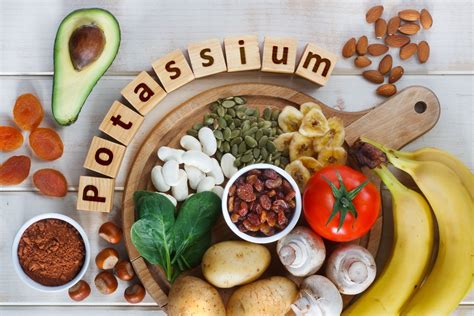
- Reducing muscle cramps and spasms
- Improving nerve function
- Supporting healthy digestion
- Reducing the risk of osteoporosis
- Improving overall cardiovascular health
Food Sources of Potassium
There are many delicious and nutritious food sources of potassium, including: * Fruits: bananas, avocados, apricots, and citrus fruits * Vegetables: sweet potatoes, spinach, broccoli, and carrots * Whole grains: brown rice, quinoa, and whole-wheat bread * Lean proteins: salmon, chicken, and turkey * Legumes: white beans, lentils, and chickpeas * Nuts and seeds: almonds, pumpkin seeds, and sunflower seedsBest Food Sources of Potassium
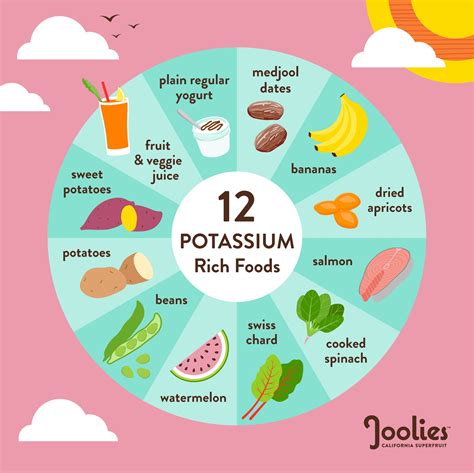
Potassium-Rich Fruits
Some of the best potassium-rich fruits include: * Bananas * Avocados * Apricots * Citrus fruits like oranges and grapefruits * Mangoes * PapayasPotassium-Rich Vegetables
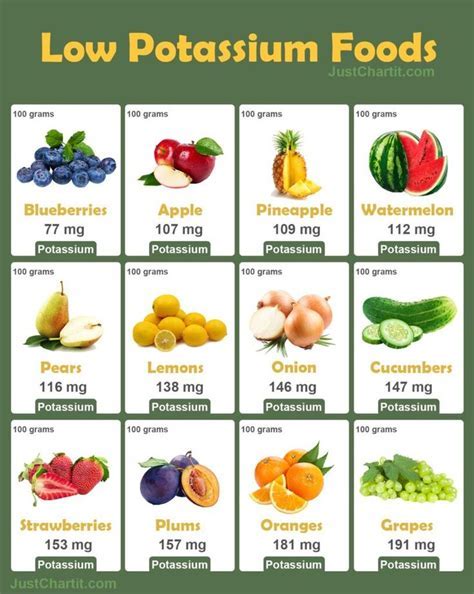
Potassium-Rich Whole Grains
Some of the best potassium-rich whole grains include: * Brown rice * Quinoa * Whole-wheat bread * Whole-grain pasta * OatsPotassium-Rich Lean Proteins
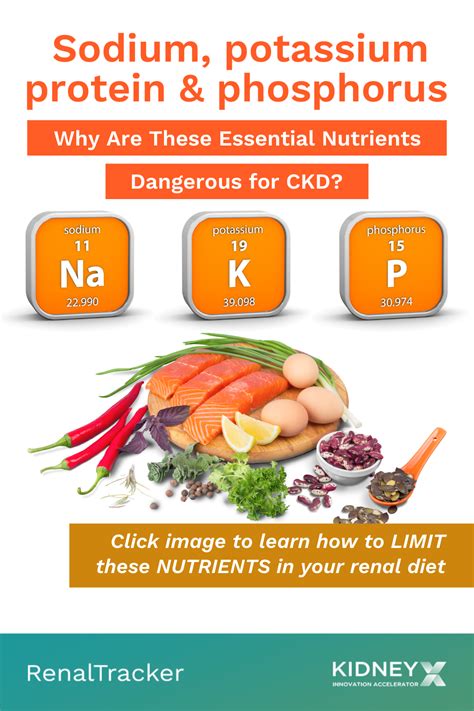
Potassium-Rich Legumes
Some of the best potassium-rich legumes include: * White beans * Lentils * Chickpeas * Black beans * Kidney beansPotassium-Rich Nuts and Seeds
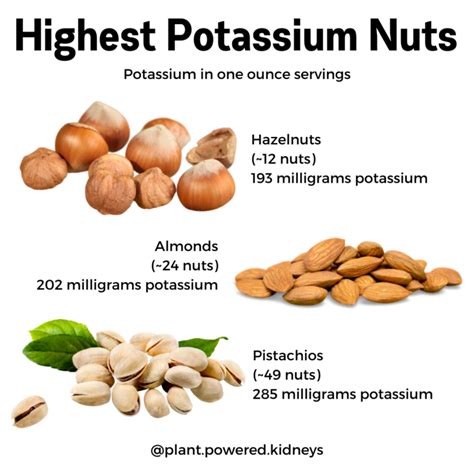
Tips for Increasing Potassium Intake
Here are some tips for increasing your potassium intake: * Eat a variety of fruits and vegetables * Incorporate whole grains into your diet * Choose lean proteins like salmon and chicken * Add legumes to your meals * Snack on nuts and seedsConclusion and Final Thoughts
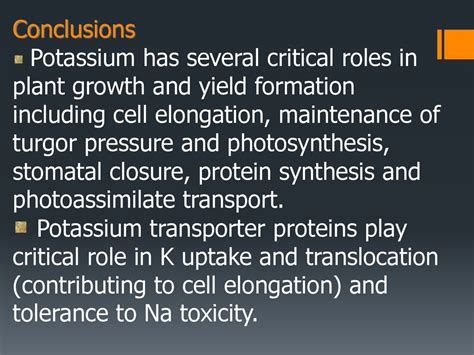
We hope this article has provided you with the information you need to make informed decisions about your potassium intake. If you have any questions or comments, please don't hesitate to reach out. Share this article with your friends and family to help them learn more about the importance of potassium and how to get enough in their diets.
What are the benefits of potassium?
+Potassium has numerous health benefits, including reducing the risk of heart disease, stroke, and kidney stones. It also helps to balance sodium levels in the body, which can help to lower blood pressure.
What are the best food sources of potassium?
+Some of the best food sources of potassium include sweet potatoes, spinach, bananas, avocados, and salmon. Other good sources include whole grains, lean proteins, legumes, and nuts and seeds.
How much potassium do I need per day?
+The recommended daily intake of potassium varies based on age, sex, and other factors, but most adults need around 4,700 milligrams per day.
What happens if I don't get enough potassium?
+If you don't get enough potassium, you may experience a range of health problems, including muscle cramps, weakness, and fatigue. You may also be at increased risk of heart disease, stroke, and kidney stones.
Can I get too much potassium?
+Yes, it is possible to get too much potassium. This can happen if you take potassium supplements or eat large amounts of potassium-rich foods. Too much potassium can cause a range of health problems, including muscle weakness, fatigue, and heart arrhythmias.
